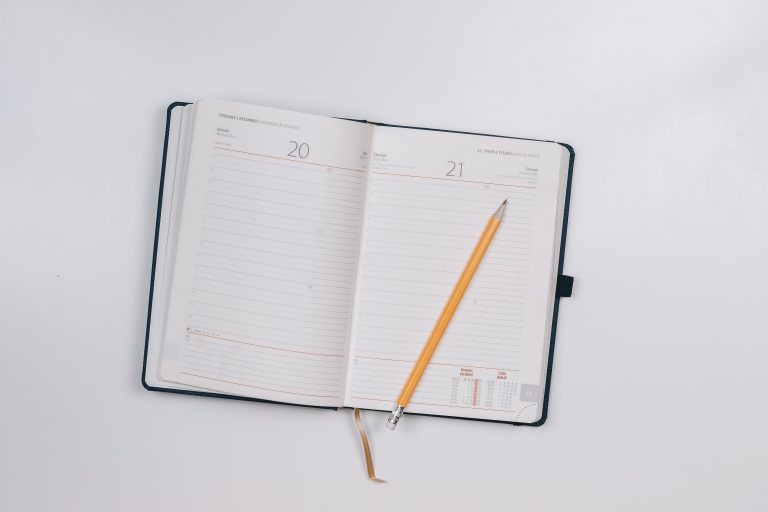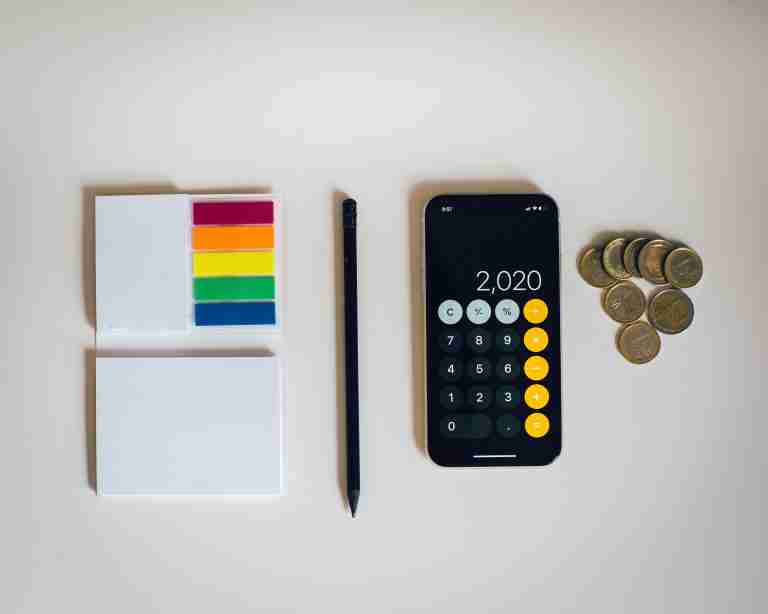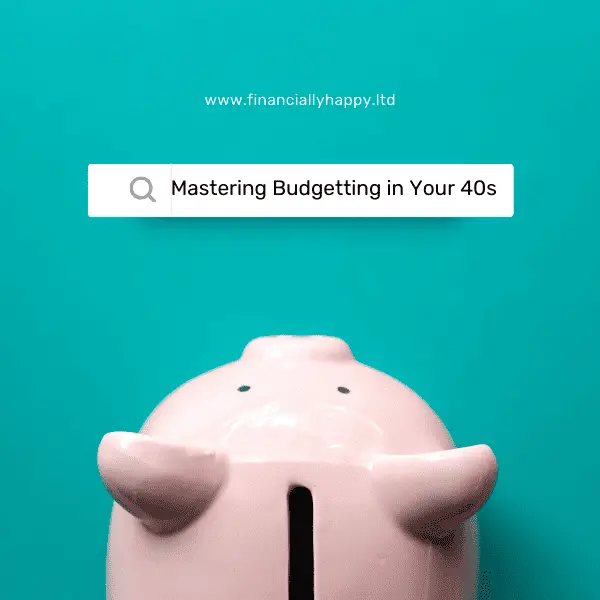Financial planning vs budgeting (what’s the difference and why it matters)
Most people know they should probably be budgeting their money in some way.
But not many people know the difference between financial planning vs budgeting.
And why a financial plan is just as important as budgeting.
Although financial planning and budgeting go hand in hand, they are not the same.
Financial planning is about where you are going in the long term with your life and finances. In contrast, budgeting is more about where you are today and giving all of your money a job to do day to day. Both of them are essential in becoming financially happy.
If you are missing one or even both of these, you are likely to find it very challenging to make any real life and financial progress towards the important things to you.
Understanding how your budgeting and financial plans fit together will be part of your life and financial success formula.
Read on to hear about financial planning vs budgeting and how they can help you achieve great things.

What is the difference between budgeting and planning?
Although it might sound like they are the same thing, financial planning vs budgeting focus on different things.
A financial plan looks more at where you are going, what you might do on the way and what sort of style you will arrive in at your destination.
A financial plan will look at multiple long-term things like what a great life looks like to you, what might that cost, and where you think the money for that might come from.
If it looks like you don’t have enough money for it all, then the plan might look at how you can create that wealth through employment or other assets you can create.
A financial plan is more of a strategy document. It will look at and plan out how you will achieve all these things you want with the time and resources you currently have or will need to create.
With a financial plan, you might review it quarterly or yearly.
A budget looks more at the day-to-day money management and ensuring you have enough right now.
A budget is more about day to day tactics for managing your money in the here and now.
A budget will provide detail for daily, weekly and probably monthly spending.
It may also cover a years spending but generally wouldn’t go much further out than this. It is a shorter-term planning tool.
Following your budget builds towards your overall life and financial plan.
If you don’t manage and save your money through budgeting, you will likely have little money for your longer-term life and financial goals.

What is the relationship between budgeting and planning?
Budgeting is ultimately about the here and now.
It looks at what you are doing with your money in the short term, like today, this week, month etc.
It’s a much shorter-term horizon to manage the day to day costs of living.
A budget’s point is to decide where you want each of your pounds, Euros, Dollars etc., to go.
You are assigning a job to each unit of currency.
This process ensures you can balance your finances daily, week or month.
Ensuring that you have enough to cover your ongoing bills, needs like food, water, shelter and medical needs whilst also covering any wants like going out or other desires.
A good budget would also cover stashing away some cash for a rainy day or an emergency fund when things don’t go to plan.
This emergency fund will help prevent or mitigate you from going into debt to deal with a crisis.
Some of these savings may also be working toward medium or longer-term goals like retirement.
Why do you need a financial plan?
If you don’t have a life and financial plan, you are leaving it to chance that you will achieve all you want to.
At best, you will be falling into someone else’s plan, and it’s doubtful they have that much planned for you.
A planning process will help lift your eyes from the here and now towards what you really want overall.
Life and financial planning will help
- Keep your focus on what you really want your life to look like in the long term
- Help keep you away from toxic debt
- Prepare you for the bumps in the road with an emergency fund and insurances.
- Ultimately help you live a happier, healthier and wealthier life than you would have if you had just drifted from one thing to the next with no aim.
A good life and financial plan can take the worry and uncertainty out of your life and finances. Giving you a clear action plan to make what’s most important to you happen as soon as it can.
If you don’t have a plan, you are relying on luck – do you feel that lucky?
Or would you rather make sure your great life happens by design?
Feeling like its time for a big life change? Find out how we can help you here
What is a financial plan, and how do I make one?
A financial plan is a road map that sets out the steps you need to reach your life and financial goals.
A financial plan shouldn’t just be about your money.
If you have a plan and it’s just about amassing more money in your bank account, then it’s just a plan about making more zeros on a computer screen.
Is that all you want from your life?
Doubtful
A good financial plan is a life plan looking at what makes a well-lived life for you.
It should be tailored to what looks good to you – not your neighbour, not compared to what you uni friends have don’t but bespoke to you.
The way to make a life and financial plan is to:

Figure out your goals
What sort of thing have you always wanted to do, have, and be?
- Travel
- Learn a skill
- Start a business
- Somewhere nice to live
- Make great art
- Free time
- Free from money worries
- Available for friends and family
These might be specific things or themes you want to make more of.
Being clear on what your goals are is the first part of aligning your budgeting with your life and financial plan.
Take the right actions
Are your current actions leading to your goals?
If not, what might you do about it today, tomorrow and each day?
Sometimes it might just be a simple shift in your actions; sometimes, it might require and significant pivot in your current habits or lifestyle to start heading towards what you really want.
- Getting up earlier
- Learning that new skill or getting that qualification
- Managing yourself to manage your time better.
- Avoid the things that are distractions from what you want most.
And don’t forget to address all the obstacles that will come in your way, both internal and external.
What three or more responses might you have to these common obstacles
- Procrastination?
- Tiredness?
- Lack of time?
- Confusion over what to do next?
- Don’t know what to do next?
- Lack of money?
Having a few tactics to overcome these potential obstacles might be the key to making significant progress on your life and financial plan.

Understand your money
Here we get to the money.
What you have and what you might need to create.
You can’t really talk about the money until you know where you are trying to get to and how you might get there. AS well as what the likely obstacles will be.
Here you will be gathering your data about what you have or what you might need to put in place.
- What your current cash flow – money in and money out
- What financial assets do you have?
- What debts or liabilities do you have?
- Do you have any investments: Stocks & Shares, property etc
- What cash do you hold?
- Do you have any things in place for when something goes wrong, i.e. Insurances?
- Are you entitled to any benefits now or later?
- How much money might make work optional for you?
- What costs do you have coming up in the short, medium and long term?
- What important events might there be in the future you need money for?
A good financial plan should also look at what your nontangible assets might be.
- What skills or experience do you have?
- What are you good at?
- What do you like doing?
- What unfair advantages might you have in the above and in your life?
All the above could be turned into assets with a monetary value if you could find enough people who were willing to pay for those skills and experience.
Execute the plan
And finally, a good financial planning and budgeting process will look at how to make it happen day today.
What order will things happen in 1st, 2nd and 3rd?
Plans these out on a calendar commit to a time and date to get things done.
Don’t be hard on yourself if you slip up and don’t achieve it in the time set.
Replan and keep going.
It’s called life and financial planning, as it’s a thing you do, not an event.
The “ing” bit means you keep doing it regularly to adjust, pivot and revise as goals change, routes become blocked, or a better option has been found.
Summary: Financial planning vs budgeting
Financial planning vs budgeting is about understanding your day-to-day vs long term needs and goals.
Use a budget to make sure you have enough money to meet today’s needs, and all of your money has a job to do, whistle putting some away for the long term.
Use a life and financial plan to map out what you most want to achieve in every area of your life, not just your money.
It should cover what actions to do to get you to where you want to be daily, weekly, monthky and yearly.
What resources it will take, and how you will create them through work or businesses.
A life and financial plan will also be considering how or if things go wrong; you can put things in place to prevent a crisis from becoming a disaster.
The number one way to ensure you reach all your goals is to have a plan.
Anyway, those are my thoughts on financial planning vs budgeting; let me know yours in the comments below.
Thanks for dropping by.
If you’ve made it this far, congratulations! You’re already taking steps towards a healthier financial future. But maybe you’re feeling a bit overwhelmed. Maybe the of budgeting, saving, and investing still makes you break out in a cold sweat. Don’t worry, you’re not alone, and help is available.
At Financially Happy Money Coaching, I understand money isn’t just about numbers. It’s about emotions, behaviours, and life choices. That’s why we’re here to help you take the stress out of money and build wealth that aligns with your values and lifestyle.
Whether you’re just starting out on your financial journey or you’re looking to take your finances to the next level, we’re here to guide you every step of the way. I’ll help you understand your financial behaviours, set realistic goals, and create a personalized plan to achieve those goals.
So, why wait? Start your journey towards financial happiness today. Remember, the best time to start was yesterday. The second best time is now.
Click here to schedule your consultation and let’s make your money work for you, not vice versa. 💪💰
Remember, financial freedom isn’t a destination; it’s a journey. And every journey is easier when you have a guide. So, let’s embark on this journey together and create a financially happy future. 🚀💸
📚 Financial Freedom Resources
- The Ultimate Guide To Building Your Savings to $100,000! 📘 is a transformative book that equips readers with principles, strategies, and the mindset 🧠 needed to reach a $100,000 savings goal 💰. It’s a journey towards financial freedom 🚀, challenging beliefs 🤔, embracing new habits 🔄, and overcoming obstacles 💪.
- How to Manage Your Finances: Your Guide to Financial Freedom 📘 is a comprehensive resource packed with practical advice on budgeting 💰, investing 📈, reducing debt 💳, and building wealth 💎. It’s an essential guide for anyone, novice or experienced, aiming to take control of their financial future and achieve financial independence 🚀.
Remember, self-study is a powerful tool for life and financial transformation. Happy reading! 🎉
📚 Financial Freedom Resources
- The Ultimate Guide To Building Your Savings to $100,000! 📘 is a transformative book that equips readers with principles, strategies, and the mindset 🧠 needed to reach a $100,000 savings goal 💰. It’s a journey towards financial freedom 🚀, challenging beliefs 🤔, embracing new habits 🔄, and overcoming obstacles 💪.
- How to Manage Your Finances: Your Guide to Financial Freedom 📘 is a comprehensive resource packed with practical advice on budgeting 💰, investing 📈, reducing debt 💳, and building wealth 💎. It’s an essential guide for anyone, novice or experienced, aiming to take control of their financial future and achieve financial independence 🚀.
- Mastering Budgeting in Your 40s: Your Guide to Financial Freedom 📘 is your essential roadmap to financial savvy. Packed with tips on budgeting 💰, investing 📈, and debt management 💳, it’s the perfect toolkit for anyone in their 40s looking to secure their financial future and sail towards independence 🚀.
Remember, self-study is a powerful tool for life and financial transformation. Happy reading! 🎉









